What is the best dehumidifier for a bedroom? Experts reveal the most important things to consider
The best dehumidifier for a bedroom will reduce humidity without being too noisy, leaving you sleeping soundly
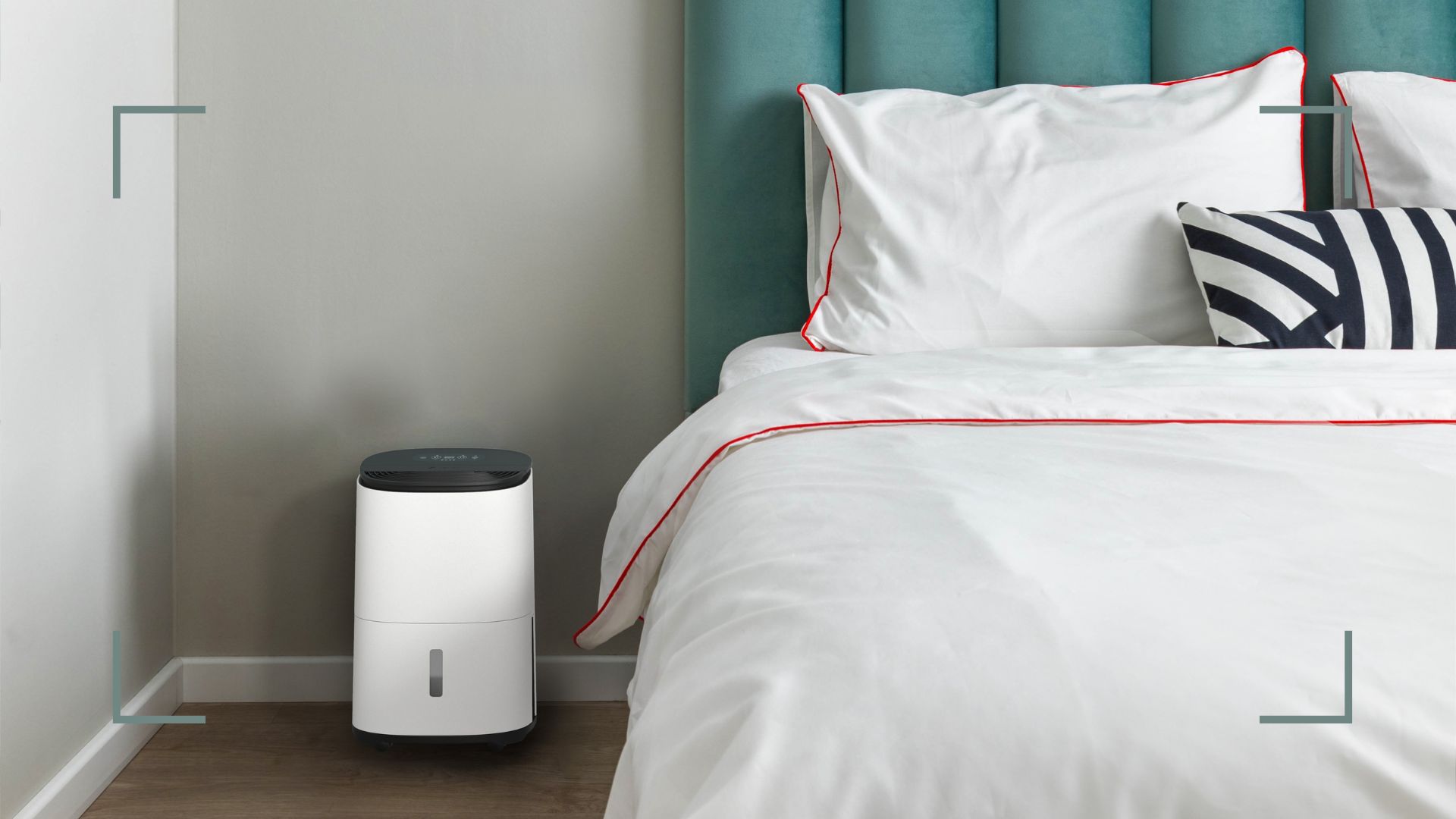

A dehumidifier will transform your bedroom back into the warmest, cosiest room in your home. So, if you’ve noticed mould, condensation, or a musty odour, in your bedroom then now is your time to invest in a dehumidifier.
When choosing the best dehumidifier for a bedroom, there are key qualities to consider, such as noise levels, portability, auto shut-off mode and how much water it can extract.
If the humidity levels in your bedroom are regularly over 60% then it’s considered high, and you need to tackle the problem before it worsens. Ideally, you want your bedroom to be between 40% and 55% for optimum comfort.
The best dehumidifiers work by removing excess water from the air and lowering humidity levels, which can eliminate pollutants, mould, damp, and allergens.
But a dehumidifier in your bedroom can help solve these problems and result in you enjoying a better night's sleep.
What is the best dehumidifier for a bedroom?
At woman&home we’ve tested some of the best dehumidifiers on the market to find the best dehumidifiers for a bedroom – it's worth mentioning that many of which are now even cheaper thanks to seasonal dehumidifier deals.
We looked at a range of dehumidifiers in various sizes to determine what the quietest ones were that would allow you to sleep soundly whilst efficiently reducing humidity in your bedroom, leaving you breathing easier.
Sign up to our free daily email for the latest royal and entertainment news, interesting opinion, expert advice on styling and beauty trends, and no-nonsense guides to the health and wellness questions you want answered.
Here's our edit of the best dehumidifiers for bedrooms...
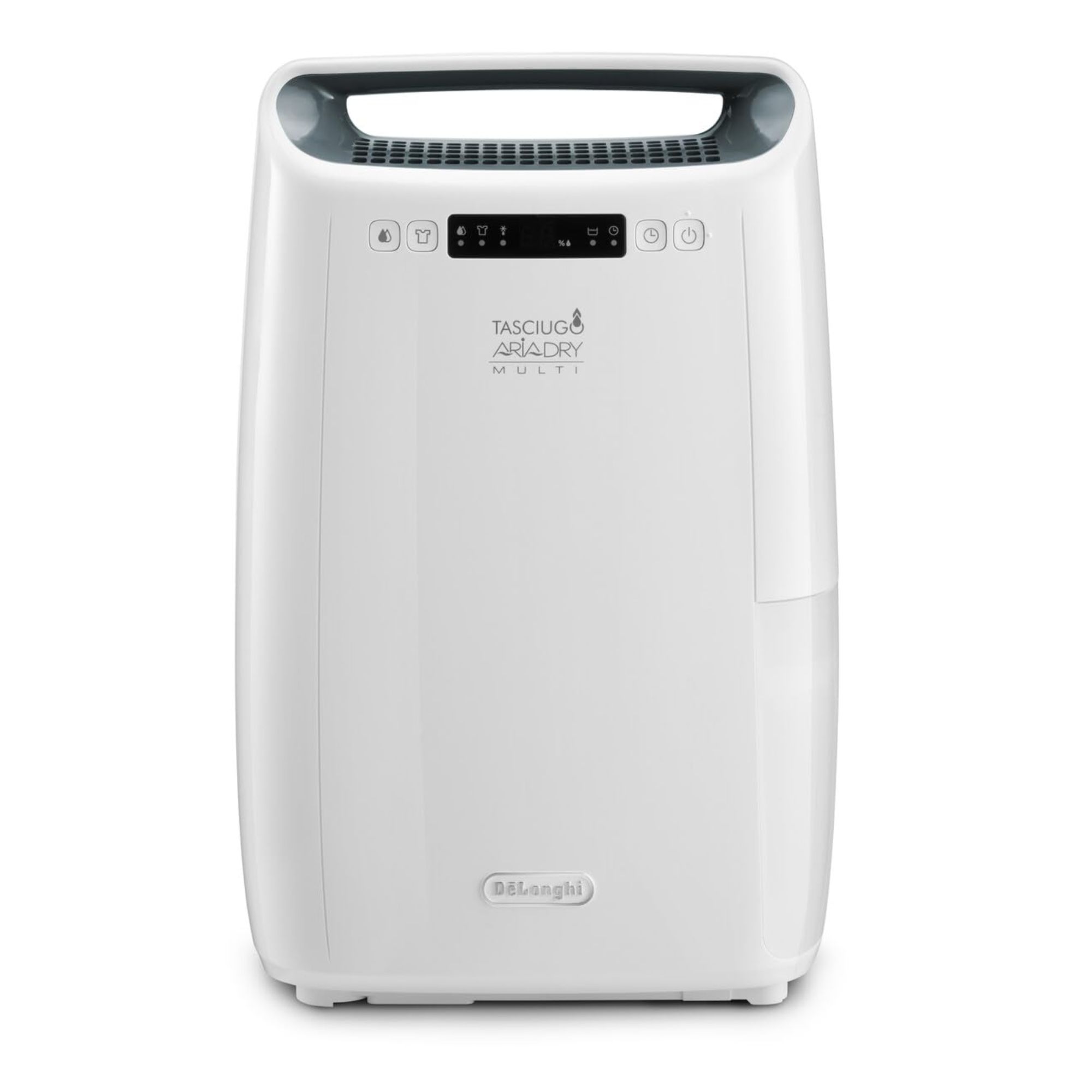
This is the one that took the spot in our buying guide as the best dehumidifier for bedrooms. It's quiet, quick, and effective at tackling condensation and dampness. You couldn't ask for any more.
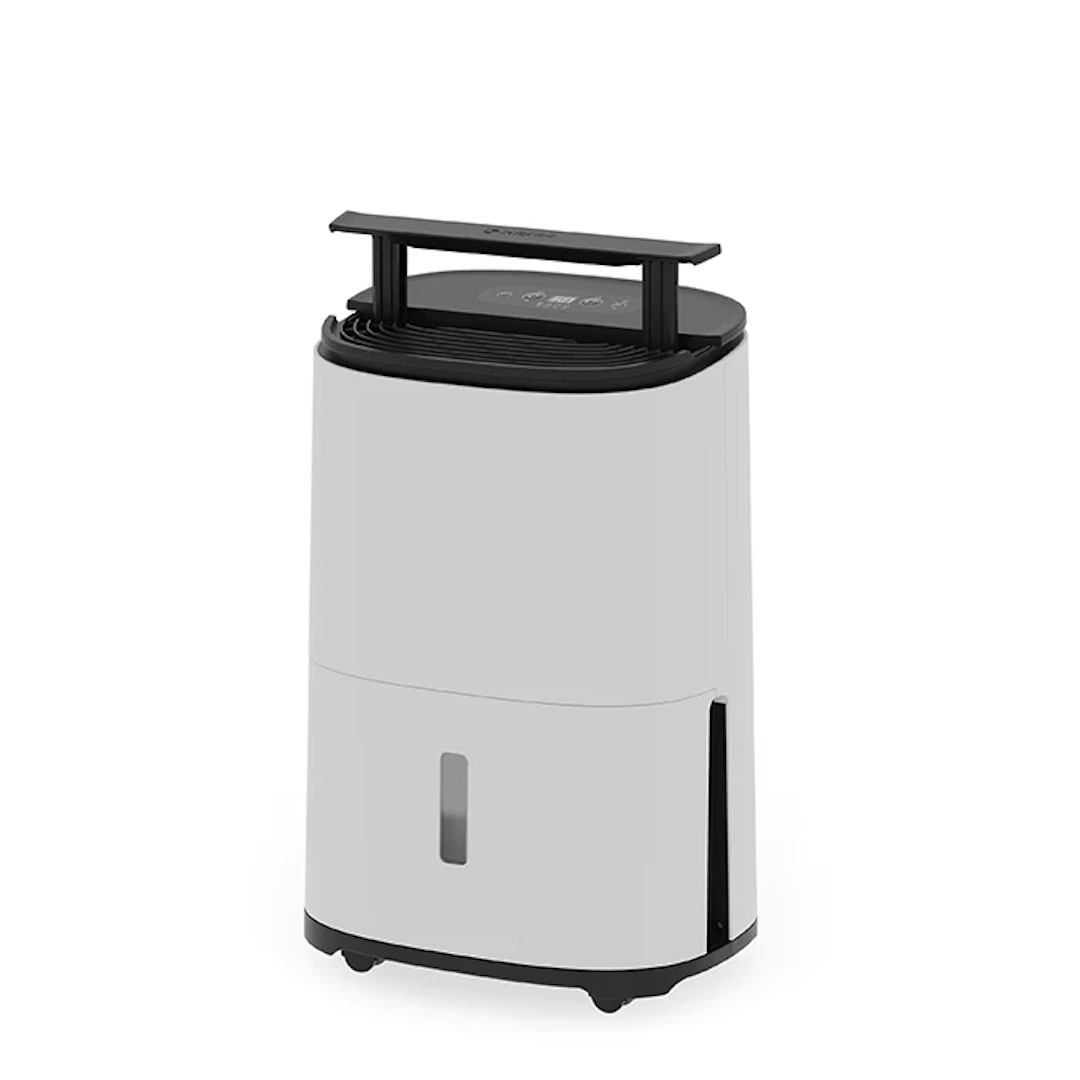
Our MeacoDry Arete One review names this as the best all-around great dehumidifier. It has a laundry mode so as well as reducing the humidity in your bedroom it can also dry your clothes. It has a dedicated night mode so you can leave it to work its magic without it disturbing you.
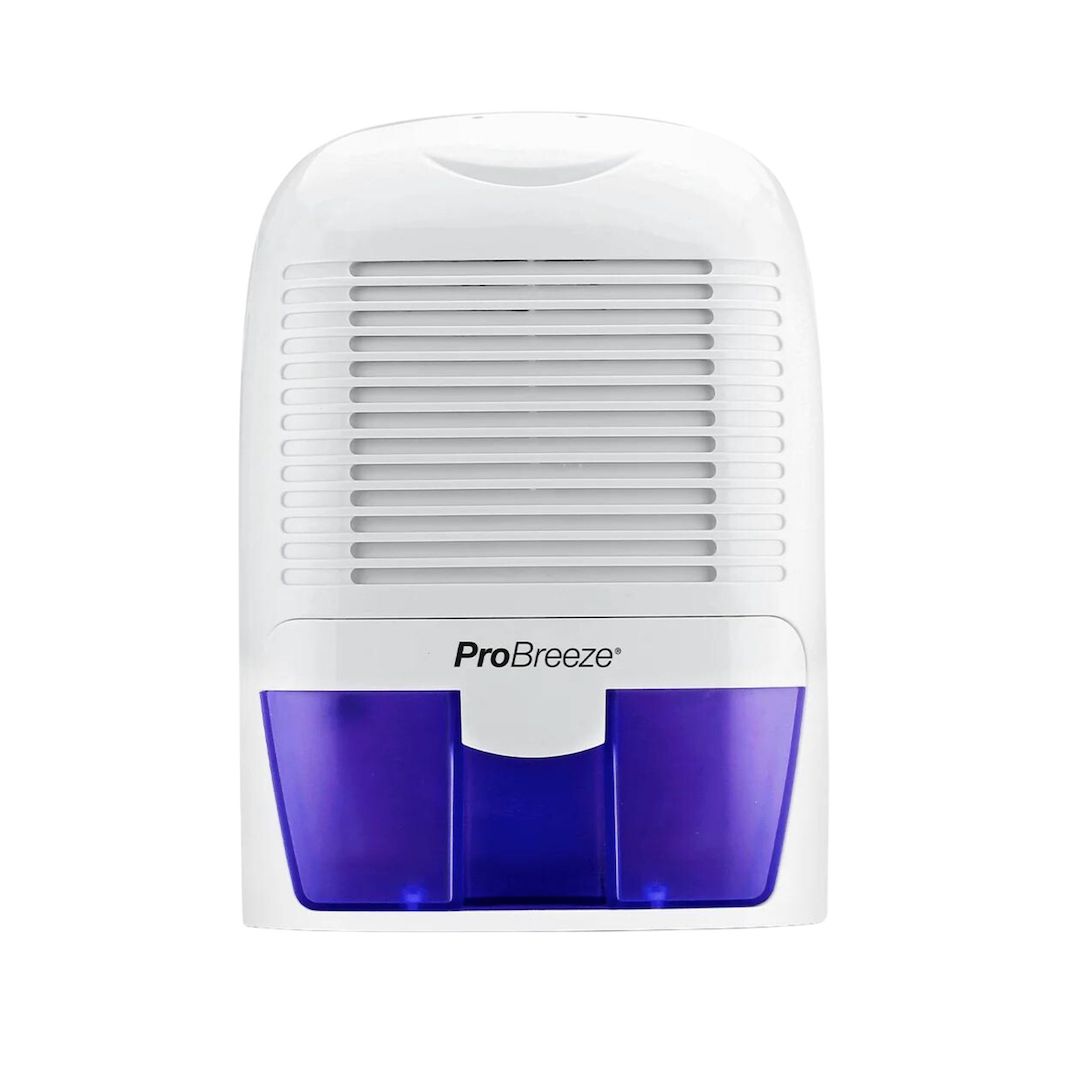
The compact and energy-efficient dehumidifier will remove up to 1500ml of excess moisture from your room daily. It’s ideal for smaller spaces such as box bedrooms or home offices. It’s very quiet and super simple to use.
Things to look for in a bedroom dehumidifier
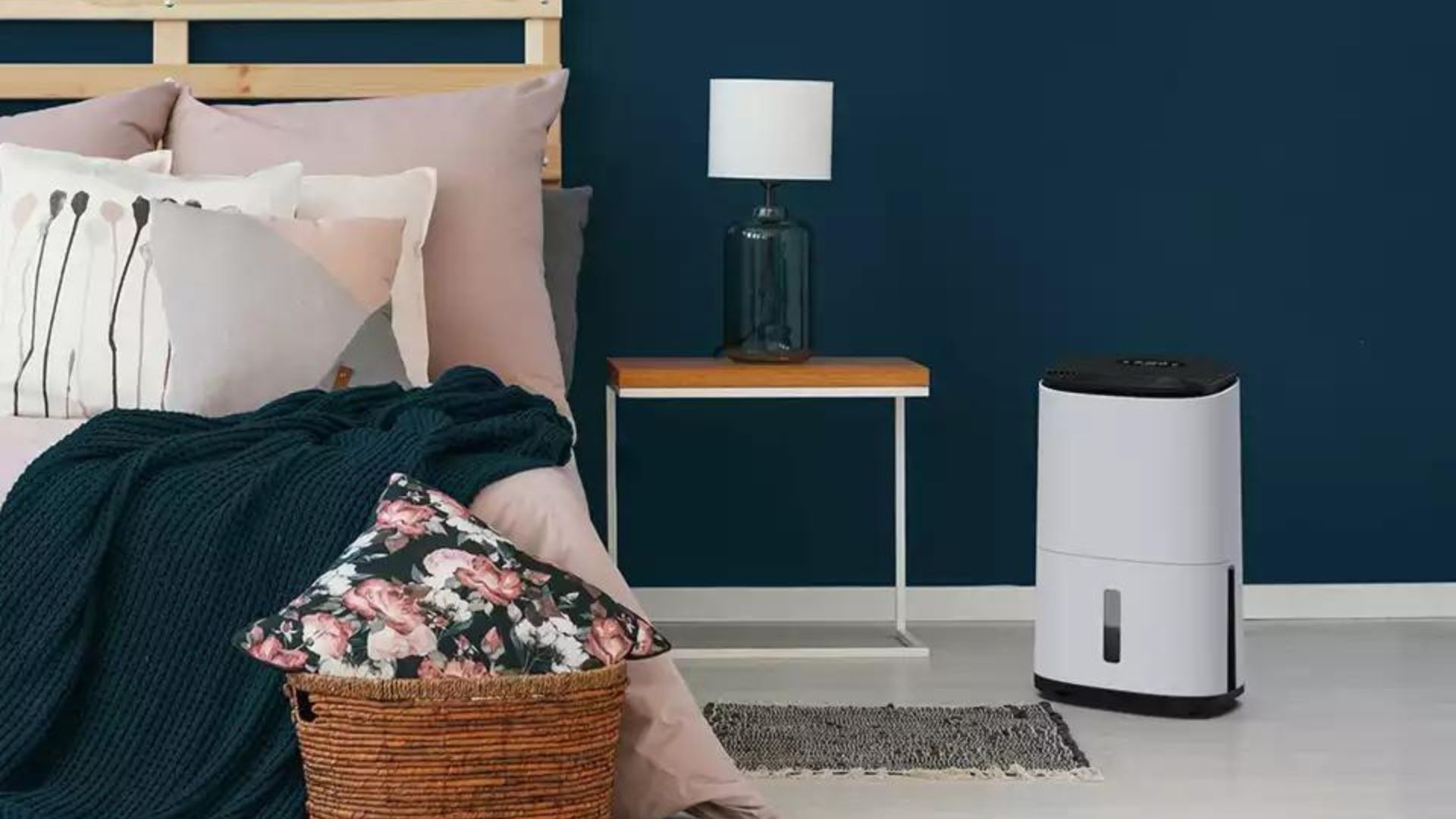
The best dehumidifiers for the bedroom are a perfect way to improve the quality of your sleep and the overall health of both you and your bedroom.
By removing the excess moisture from the air, dehumidifiers don’t just prevent the growth of mould and mildew, which can cause respiratory problems. Still, they can also help improve indoor air quality by reducing airborne allergens such as pollen, dander, and dust mites, leaving you breathing easier.
High humidity is often caused by excess moisture and condensation, which gets trapped in the air due to various factors such as drying your clothes indoors, leaks, and poor ventilation. This warm, damp environment then creates an ideal mould and bacteria breeding ground. If left untreated, this can lead to unpleasant odours, damaged furniture, mould spots, wood rot, and even structural damage.
Not to mention the negative impact it can have on your health, with high humidity levels worsening conditions such as asthma and allergies as well as leaving you with headaches, dizziness, nausea, and struggling to sleep.
But with so many on the market, it can be tough to decide on why you should buy a dehumidifier for a certain space. While most modern dehumidifiers share similar functions, there are a few things to look out for when choosing the best dehumidifier for bedrooms.
- Noise level: This is one of the most important things to consider when choosing a dehumidifier for your bedroom. Unless you’re someone who can fall asleep as soon as your head hits the pillow and stay asleep regardless of the noise going on around you, you’ll need to opt for a dehumidifier that doesn’t make too much noise when it’s working.
Look for a dehumidifier with a noise level of 40 decibels or less. Some models of dehumidifiers have specific night modes where any lights on the machine are dimmed, and the fans run at their lowest speed through the night, so even though it’s still working at removing water from the air, it won’t keep you awake. - Size: Dehumidifiers come in various shapes, sizes, and designs, meaning you can find one that will perfectly fit your space and, perhaps more importantly, your decor. But it is still important to check that the size of the dehumidifier you opt for is up for the job. When looking for the best dehumidifier for your bedroom, pay close attention to the specifications, including the maximum room size it can service and the extraction rate.
- Portability: If the dehumidifier is going in your bedroom, then you may want to choose one that is smaller and less bulky so that it doesn’t get in the way. If you need a larger capacity dehumidifier, look for one with a handle or wheels so you can easily move it around and out of the way if you need to. Choosing a dehumidifier for your bedroom that is portable also means you can leave your dehumidifier out on the landing to reach multiple areas of your home, this is a really good idea if you’re sensitive to noise. Chris Michael, managing director at Meaco, a leading dehumidifier manufacturer suggests, “To start with it might be a good idea to put it into the bedroom during the day and to leave the wardrobe open to let the dry air circulate.”
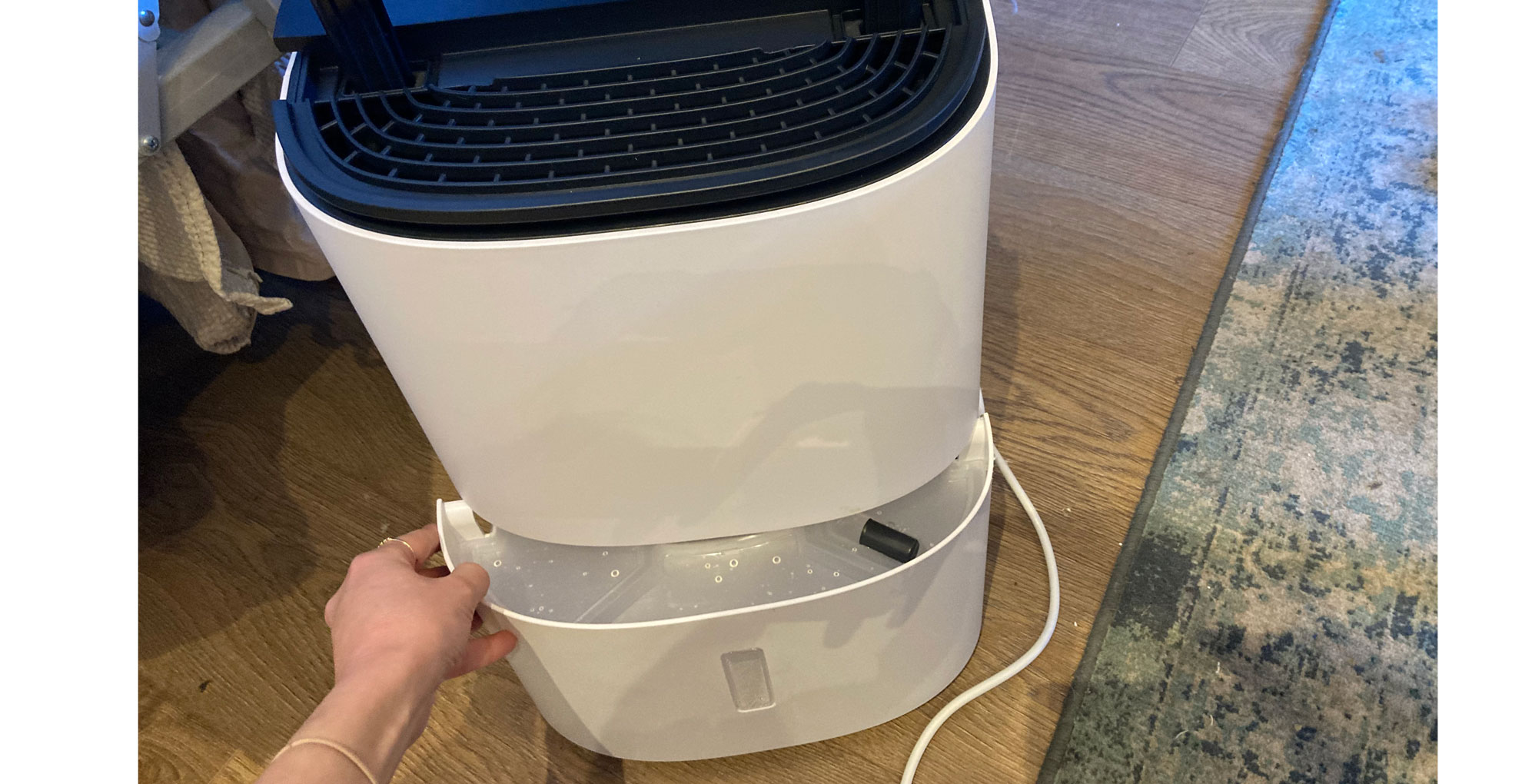
- How much it costs to run: Household bills seem to be growing bigger by the day, knowing how much it will cost to run a dehumidifier in your bedroom may impact which model you choose. The cost of running a dehumidifier depends on a few factors, such as the appliance itself, how long you will use it, and your energy tariff.
It’s worth noting that dehumidifiers can help to dry clothes quicker, doubling up as an efficient way to dry laundry without having to switch on your costly tumble drier. "A dehumidifier can cost as little as 5p an hour to run in comparison to a tumble dryer which can cost over £1 per cycle, making them a much more energy-efficient alternative," explains Chris. - A built-in hygrometer: The best dehumidifiers will have a built-in hygrometer, which will monitor the humidity levels of your room, giving you the option to adjust the settings so you can maintain an optimal sleeping environment.
Look for dehumidifiers that have an auto mode function that takes all the hard work out of using your dehumidifier as you will be able to set your perfect humidity level, and if it rises above that, the dehumidifier will automatically kick in to bring the level back down. This is also a good way of saving energy when using your dehumidifier, as it will automatically stop working once it has reached its desired humidity levels. - Humidity control settings: Different dehumidifiers offer different levels of humidity control, to prevent condensation in the home on all levels. As I briefly mentioned above, it’s best to choose a dehumidifier that will allow you the flexibility to tailor the humidity settings to your personal preferences and offer a variety of preset modes.
- Other features: Modern dehumidifiers do so much more than just remove the excess moisture from the air. Many come with additional features that will make owning one feel like a non-negotiable. Look out for additional features such as laundry drying modes, air-purifying qualities, Wi-Fi connectivity, and, of course, a dedicated quiet or sleep mode, to name just a few. Also, consider how to clean a dehumidifier to factor that into making the maintenance as easy as possible when used in a bedroom.

Chris Michael is the expert co-founder of Meaco. Since its launch in 1991, Meaco has become a leading UK provider of air treatment products and the brand’s products have won a wealth of industry and design awards internationally.
What is the best type of dehumidifier to buy for a bedroom?
There are three main types of dehumidifiers to choose from: compressor, desiccant, and peltier. However, compressor and desiccant dehumidifiers are the most common two on the market. Here's how they all differ:
- A compressor dehumidifier works by cooling the air below its dew point. This then condenses the moisture and is collected in a water tank. A compressor dehumidifier is by far the cheapest to buy and run. They can be a little noisier than desiccant or Peltier versions, but they also have a lot more functions.
- Desiccant dehumidifiers use a desiccant material, such as silica gel, to absorb moisture from the air. They also pump warm air back out into the room and can operate in low temperatures, so ideal for spaces such as garages or rooms that don’t have any heating.
- Peltier dehumidifiers, also known as a thermoelectric dehumidifier, uses the Peltier effect to remove any excess moisture from the air. The Peltier effect occurs when two semiconductors are joined together, and a current is applied. These dehumidifiers are often small, quiet, and cheaper to run. But while they seem like the best dehumidifier for the bedroom, they are not as effective at removing moisture from the air as a compressor or desiccant dehumidifier.
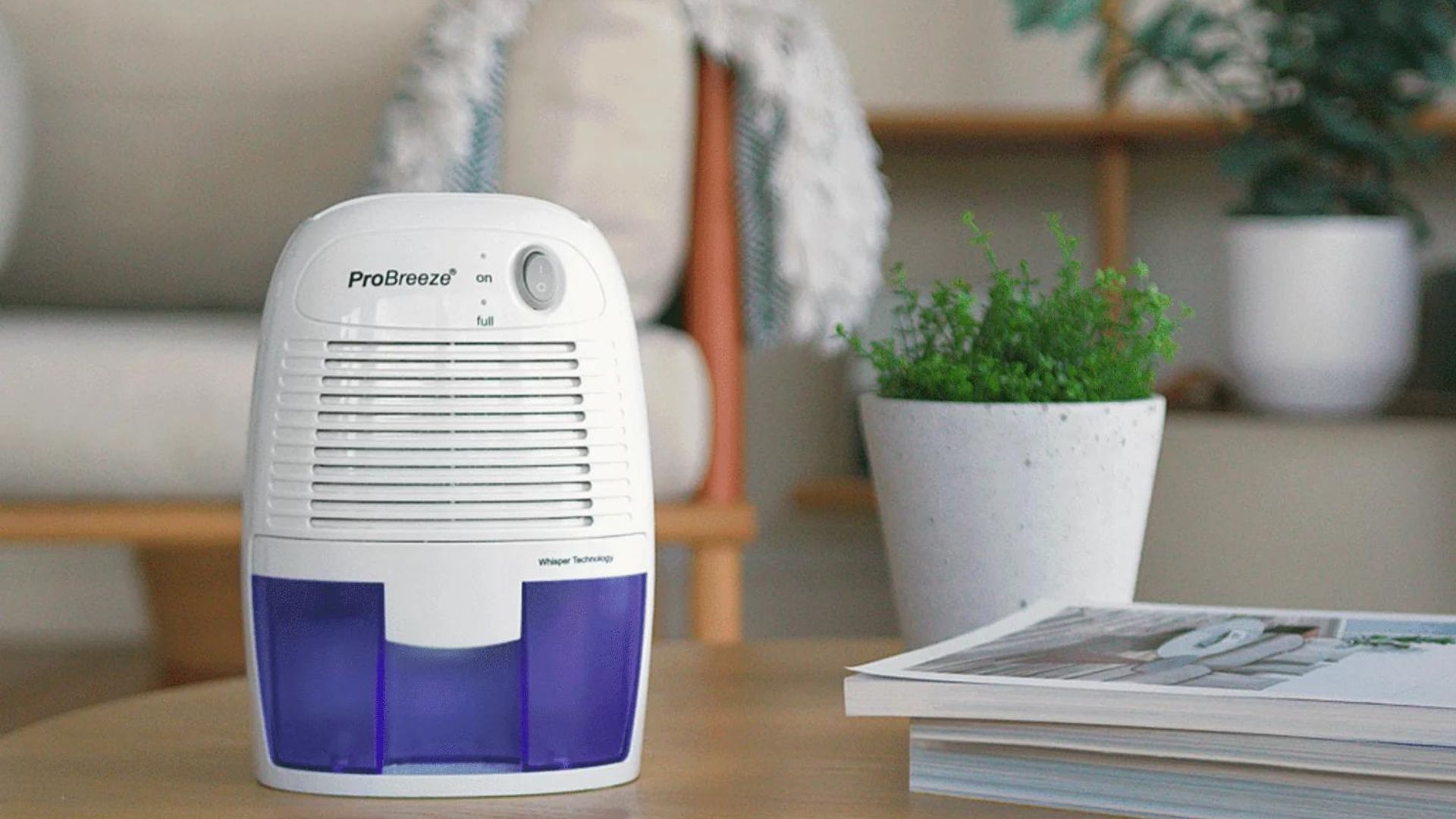
One of the best dehumidifiers to buy for the bedroom is the MeacoDry Arete One dehumidifier. It comes in a range of sizes from 10L to 25L, so whatever size your bedroom is, this dehumidifier can handle it. Its curved design means it won’t look out of place in even the most stylish of rooms, and it has a range of settings from laundry drying mode to night mode. Plus, it benefits from auto-shutoff so when the tank is full or it’s reached its desired humidity level, it will automatically switch off, saving energy.
The ProBreeze 1500ml is an excellent choice if you have a small room. It uses next-generation Peltier technology and will remove around 500ml of water daily. It runs quietly, and while you can’t adjust the humidity settings, it will remove any condensation from your windows each morning.
FAQs
What size dehumidifier do I need for the bedroom?

What size dehumidifier you need for a bedroom depends on two things. First of all, how big your space is. So we recommend measuring your area to find the square footage; this will give you a better idea about the kind of size appliance you will need.
Secondly, the level of excess humidity that your room suffers from. You won’t always be able to tell this just from looking at your room, but if you are showing signs of excess moisture, such as condensation on the inside of your windows when you wake up in the morning, mould patches on the walls, or even a musty odour then there is a good chance your room suffers from high humidity. Therefore you need to choose a dehumidifier that can take a larger amount of water vapour out of the air. A dehumidifier in a bedroom is the ideal way to prevent mould in wardrobes.
Don’t pay too much attention to the size of the water tank when you’re looking, as that will just determine how often you have to empty it. The key figure is to look at how many litres of water the machine can extract.
For an apartment or small two-bedroom house, you should opt for a dehumidifier that will collect between 10 and 12 litres per day. For a medium-sized house, it should range between 12 litres for light moisture to 25 litres if you have a very damp home that sits at around 70-80% humidity.
It’s also important to note that if your bedroom is experiencing high levels of humidity, then the rest of your home will be too. A dehumidifier doesn’t have to sit in the room that you want to tackle. For example, you could leave your dehumidifier on the landing in between your bedroom and other rooms in your home so that it works the entire area. So long as you’ve chosen the right size of a dehumidifier, this will effectively remove all the excess moisture throughout your property.
Where should a dehumidifier be placed in a bedroom?
The best place to position a dehumidifier in the bedroom will vary, depending on the size of the room and the bedroom layout.
As a general rule of thumb ideally, you would place the dehumidifier in a central location within the bedroom to allow for maximum air circulation. "This ensures that the dehumidifier can effectively pull in moist air from all parts of the room," Chris explains.
If you need to target a persistent problem move the dehumidifier close to moisture sources. "If there are specific areas in the bedroom that tend to be noticeably affected by excess moisture, such as windows, external facing walls, or where clothes are dried, placing the dehumidifier closer to these areas can help the dehumidifier do the job quicker," says Chris.
Whether you place it in turns of layout one thing is for sure, it should be kept away from walls and furniture. "In general, dehumidifiers need to be about 30 cm away from the wall," Chris advises. "This helps maintain good airflow around the unit and prevents the air intake and outlet from being blocked."
He goes on to add: "The Meaco Arete range has been engineered to solve this problem. It can be put right up against the wall, and it will still do the job."
While a dehumidifier is the best way to tackle excess moisture it might be that even the quietest mode is still too distracting for the lightest of sleepers. If this is the case consider the best plants to help with condensation to lessen how much you need to run a noisy appliance during the hours while you are sleeping.

Rachael has been a freelance journalist specialising in lifestyle, home, and technology for the past 19 years. She has been reviewing household appliances, from vacuum cleaners to dehumidifiers, across various Future publications for the last five years. This means she's tested dozens of dehumidifiers over the years to compare the best brands and models based on how well they work in her Victorian terraced house, which suffers from dampness and condensation, the perfect environment to test the best dehumidifiers.